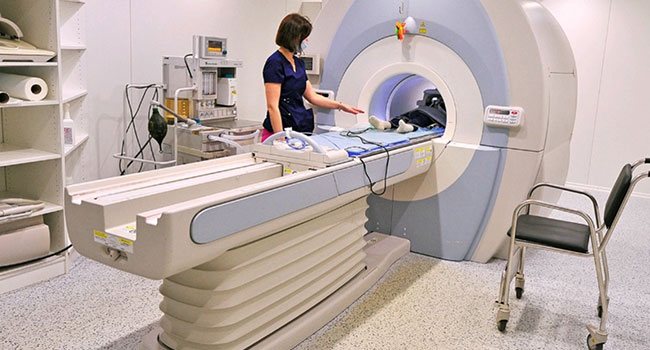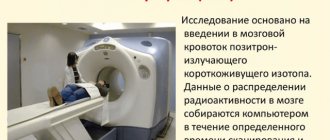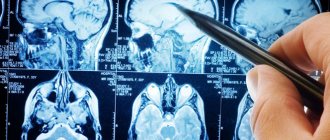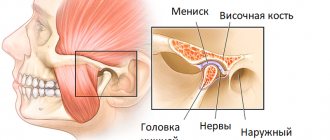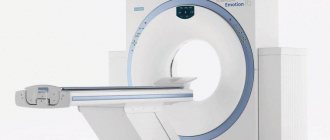MRI free of charge in Moscow and St. Petersburg under the compulsory medical insurance policy without a referral
The technological effectiveness, information content, and harmlessness of magnetic resonance imaging make diagnostics popular.
The high cost of equipment does not allow every hospital to buy tomographs, so the majority of the Russian population does not have the opportunity to get an MRI for free. Residents of Moscow and St. Petersburg can undergo examination free of charge under the compulsory medical insurance policy. More than sixty clinics in Russia offer the service. The advantage of a compulsory medical insurance policy is the opportunity to choose a suitable medical institution with a modern high-tech scanner and qualified radiology doctors. In the “Med” sections of the site, readers will be able to optimally choose a medical institution near their place of residence, a metro station, offering services at night, around the clock. We offer an extensive list of triage points at diagnostic centers that offer magnetic resonance imaging services.
There is no other study with similar information content when examining the spine, brain, and joints. High-field tomographs show changes in soft tissues with lesion sizes starting from 1 mm.
We recommend compulsory medical insurance to all clients with serious diseases of the brain, spinal cord, and spine that require periodic re-examination several times a year. Under insurance, expensive tomography is performed free of charge.
CT, MRI and other free high-tech medical care
The list of free services and procedures available in Moscow is constantly expanding. Twice as many subsidies were allocated for high-tech medical care - five billion rubles this year versus 2.5 billion last year. In 2015, more than 101 thousand Muscovites received such assistance, most of whom were treated not in federal, but in city institutions. Care was provided in 39 city hospitals in 20 specialties.
Computed tomography, MRI with contrast, gamma knife surgery and PET CT (positron emission tomography) are on the list of high-tech medical care services that Muscovites can receive free of charge under their compulsory health insurance policy. PET CT in the capital began to be performed free of charge this year; it is available in the 57th city clinical hospital and the 62nd city oncology hospital. Previously, the procedure could be done for a fee (the cost is about 50–70 thousand rubles in Russia and at least a thousand euros abroad). A gamma knife is used to operate at the N.V. Research Institute of Emergency Medicine. Sklifosovsky. This is a radiosurgical unit for the treatment of benign and malignant tumors and vascular malformations of the brain. The operation is performed without craniotomy and even without skin incisions. In addition, Gamma Knife does not irradiate healthy tissue.
Over the past five years, the number of computed tomographs in medical organizations in Moscow has increased 2.5 times (from 68 to 168), magnetic resonance imaging scanners - three times (from 33 to 102).
Over the past five years, the number of computed tomographs in medical organizations in Moscow has increased 2.5 times (from 68 to 168), magnetic resonance imaging scanners - three times (from 33 to 102). Last year alone, 641 thousand CT scans and 222 thousand MRIs were performed. Compared to 2010, the number of studies has more than tripled, and waiting times have decreased from several months to 10–13 days.
Is there a free MRI?
For people who cannot pay for the study or obtain insurance, public hospitals offer quotas. A certain number of people in the program receive MRIs free of charge, but only at the facility where the person is served. There are long queues for routine examinations. Only emergency patients who are referred by a doctor undergo nuclear magnetic resonance urgently.
There are free MRIs, but only for a certain category of patients. Quotas in clinics are several procedures per month. Low capacity creates queues. It is impossible to increase the number of services, since the equipment must pay for itself. Repair and maintenance are accompanied by large financial costs. State medical institutions on their own will not be able to provide high-quality operation, so the service must be paid for.
If you wish, you can get an MRI of the brain for free in the following situations:
- The service is included in the list of diagnostics of health insurance;
- Performed according to a quota in a clinic or hospital;
- For a promotion in a private clinic.
Quotas are allocated by doctors to patients who really need a scan and have a waiting list of more than a month. Directions are required to complete.
By law, anyone has the right to undergo a free magnetic resonance imaging scan. The implementation of the condition is carried out in turn. In MSC and St. Petersburg, sometimes you have to wait more than half a year.
What is MRI
MRI – magnetic resonance imaging. The study provides an opportunity to identify pathological changes in the human body in the initial stages of the disease. The technique is based on the analysis of the behavioral characteristics of hydrogen atoms in human tissue structures under the influence of the electromagnetic field created by the tomograph.
Tomography allows you to diagnose the disease more accurately than using fluorographic images and ultrasound. The doctor can examine each human organ in three-dimensional form, which allows him to study abnormalities, determine a diagnosis and prescribe effective treatment.
MRI does not have a negative effect on the body, which allows its use in studying the conditions of pregnant women and children of any age. It is an indispensable diagnostic equipment for identifying tumors, analyzing the condition of the vessels of the circulatory system, bone pathologies and disorders of the human nervous system.
Tomographs, based on the level of the generated electromagnetic field, are classified into MRI 3 tesla, from 0.5 to 1.0 tesla or less.
Where to get a free MRI in Moscow
In public clinics in Moscow, quotas for the service are several places per month. The expensive procedure must be paid for by hospitals. Without the receipt of financial resources, the tomograph will stop due to the inability to pay for maintenance, the cost of electrical energy, or replace damaged components.
Private clinics offer a paid service. Referral is advisable, but commercial diagnostic centers do scans at the client's request. It is better to take out insurance to perform the procedure in case of emergency and lack of financial resources. Insurance companies cooperate only with certain medical centers, so before concluding a contract you need to familiarize yourself with the list of institutions. The Unified Advisory Center offers a list of verified institutions offering MRI services of the brain, spine, pelvis, joints, and blood vessels.
Not all insurance companies include magnetic resonance imaging as a free procedure. This factor must be taken into account, since the high cost of scanning does not allow for urgent analysis.
How to get a free MRI at MSC
Medical centers will perform tomography of the spine, joints, and brain if the patient meets a number of conditions:
- Make an appointment by phone;
- Submit an electronic registration form;
- Visit the clinic reception;
- Obtain a referral from your attending physician;
- Apply for a quota;
- Have documents (passport, SNILS, compulsory medical insurance policy);
- Outpatient card.
Even if you have insurance, establishments will not perform an MRI without a referral. A person's personal desire is not an indication. The need to diagnose the spine and brain is determined by the attending physician, a specialist (neurologist, oncologist, neurosurgeon). The referral must contain the doctor's stamp and the stamp of the institution.
Sample referral for magnetic resonance imaging
Typically, medical workers in clinics in St. Petersburg and Moscow offer the patient a list of clinics where diagnostics can be performed for a fee. Doctors are aware of the huge queues of X-ray rooms with quotas, so to speed up the procedure they offer a list of available centers. If there are no financial resources, a policy, explain to the specialist the desire to receive a quota or take advantage of the guaranteed right of free nuclear magnetic resonance, a person should be provided free of charge within thirty days, but the requirement is not fulfilled due to long queues.
Only for the “urgent queue” you will have to wait about two weeks. This examination is performed according to the following indications:
- Suspicion of a tumor;
- Metastases in the gall bladder, kidneys, liver, spleen;
- Fatal diseases of the arteries and cardiovascular system.
In other cases you will have to wait a long time.
How to get a free MRI for children
Immediately after the birth of the baby, parents should take care of obtaining a policy for the child. Using this document, you can get a tomography done on your child, but the procedure is performed free of charge only if there is evidence. These include:
- congenital abnormalities of organs or brain;
- diseases that are toxic or infectious;
- injuries received during childbirth;
- the child is mentally or physically retarded.
How to sign up for an MRI for free in St. Petersburg
List of common actions for free scanning under the compulsory medical insurance policy for free:
- The doctor issues a referral strictly according to the indications and determines the urgency of the diagnosis. A quota permit is required for each individual area of the body. Refusals to be placed on a free queue are disputed with the head of the clinic or the head of the medical unit;
- The referral is issued to a specific clinic with which the insurance company has entered into an agreement;
- You can challenge the terms of the service if the thirty-day period according to the waiting list is exceeded at the department of the Ministry of Health.
For nonresident people, insurance issued in St. Petersburg or Moscow City is required. The company automatically assigns the client to one or more medical institutions.
Is it possible to get an MRI without a doctor's referral?
Before choosing a diagnostic method, the doctor analyzes clinical, laboratory, clinical and instrumental methods. The results allow us to suggest the type of pathology and select the optimal option for verifying morphological changes.
Not every doctor follows the patient’s lead and issues a referral. A specialist will exclude a highly informative method of research for several reasons:
- The information obtained will not affect your treatment;
- There is no objective data for diseases of the head, neck, and other organs that can be detected by nuclear magnetic resonance;
- There are contraindications.
The suspiciousness of some patients forces them to look for ways to detect the etiology of certain clinical symptoms. For example, it is difficult for a person to explain why a doctor does not prescribe an MRI scan for difficulty swallowing, headaches, or hormonal diseases.
For patients with increased suspiciousness, paid clinics offer the opportunity to do an MRI without a doctor’s referral. If it is possible to pay for an expensive procedure, sign a voluntary consent for the study, we will resolve the issue.
It is more correct for the examination to be prescribed by a specialist. The clinician (traumatologist, surgeon, neurologist, therapist) will accurately select the type of scan and formulate diagnostic goals.
There are several types of nuclear magnetic resonance. If the doctor directs, he accurately indicates the area of study, a list of clinical features that affect the quality of the tomography. The information helps the radiologist optimally select the type of scan and determine the need to administer contrast.
European clinics offer a unique without referral. According to doctors, the examination is irrational due to the low statistical information content of the procedure. Detection of minor pathological changes in the head, spinal cord and brain does not affect treatment tactics. The approach is not justified by the high price tag. The only condition under which it is necessary to do a tomography of the whole body is an oncological search.
If you have complaints, it is better to first contact the clinician, even if there is no trust. Medical education is enough to choose the optimal method for diagnosing pathology.
For people with a fear of cancer, it is better to have an MRI scan without a doctor’s referral, since the psychological characteristics of the individual will not allow them to “sleep peacefully.” Even the discovery of a minor pathology will reassure a person. If treatment is prescribed, recovery will occur quickly. This category of patients is always found in clinics, which must be taken into account.
The correct scheme for conducting nuclear magnetic resonance is an examination by a clinician, the decision of a radiologist is to refuse or perform diagnostics. The more information collected at the preliminary stage, the lower the risk of complications after scanning.
Contraindications for MRI:
- Metal implants in the body;
- Wearing pacemakers, insulin pumps;
- Allergic reactions to iodine (when planning contrast);
- Poor kidney function (contrast cannot be administered).
Typical situation (communication with a patient) – “I met a nurse I knew who said that headaches could be the result of poor functioning of the hypothalamus or pituitary gland. It's better to do an MRI."
If the woman continues to “promote the idea,” it is better to undergo an MRI of the brain to calm down. True, “pleasure” will not come cheap.
Thus, it is not necessary to have a referral, but the document is desirable, as it improves the quality of the procedure and saves the budget.
Is MRI included in the list of free services under compulsory medical insurance?
Magnetic resonance imaging (MRI) is included in the list of medical care under the compulsory medical insurance program in 2021. But it should be borne in mind that MRI is not used to diagnose diseases of the genitourinary, respiratory and digestive systems (intestines, stomach, lungs, etc.), since they have a hollow structure. Ultrasound equipment is used to study their condition.
Contraindications to tomography are limited by the technical features of MRI equipment, namely the use of a strong electromagnetic field. This diagnostic method is not used for people with a pacemaker or other implanted electronic devices or metal-based devices.
